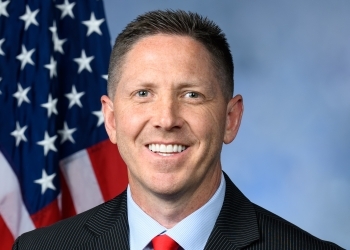News
Oklahoma
Posted: Feb 01, 2024 2:23 AMUpdated: Feb 01, 2024 2:23 AM
Congressman Josh Brecheen Votes Against the $155 Billion Tax Bill That Expands Welfare for Low Income and Illegal Aliens

Congressman Josh Brecheen and 46 other Republicans voted against H.R. 7024, the so-called “Tax Relief for American Families and Workers Act of 2024.”
“I support the business deduction and depreciation changes in this bill, unfortunately, the low-income individual welfare benefit expansions (eligible to illegal aliens) that were added to obtain President Biden’s and Senate Democrats’ support made this a bad deal,” said Congressman Josh Brecheen.
“This bill also weakens work requirements and according to the Joint Committee on Taxation will generate $155 billion in new deficits over the next 20 months, exacerbating our inflation crisis. Typical of Washington, the promised ‘pay-fors’ calculated over ten years will likely disappear,” concluded Brecheen.
Brecheen cites findings by the Heritage Foundation’s report, “The Tax Relief for American Families and Workers Act: Light on Tax Relief and Heavy on Welfare Expansion”:
- “Under current law, illegal aliens who have children that were born in the U.S. (and many do) can claim welfare benefits from the ACTC [Additional Child Tax Credit]. The Ways and Means bill expands these welfare payments for millions of people who are in the U.S. illegally, and for millions more entering in the future...”
- “The bill weakens welfare work requirements and continues a long-standing push by Congress to dress up welfare benefits as ‘tax relief.’”
- “The JCT’s formal estimate shows a 10-year deficit impact of only $399 million. However, the 10-year aggregate estimate obscures the uneven distribution of the bill’s deficits. According to the JCT, the bill would generate increased federal deficits of $117.5 billion in FY 2024 and an additional $37.8 billion in FY 2025.”
- “These deficits can be expected to drive further inflation and increasing interest rates as the government generates new money or money substitutes that are divorced from increases in real productive capacity and as it crowds out private borrowing. In total, the TRAFWA would increase near-term federal deficits by $155.3 billion over the next 20 months.”
« Back to News















